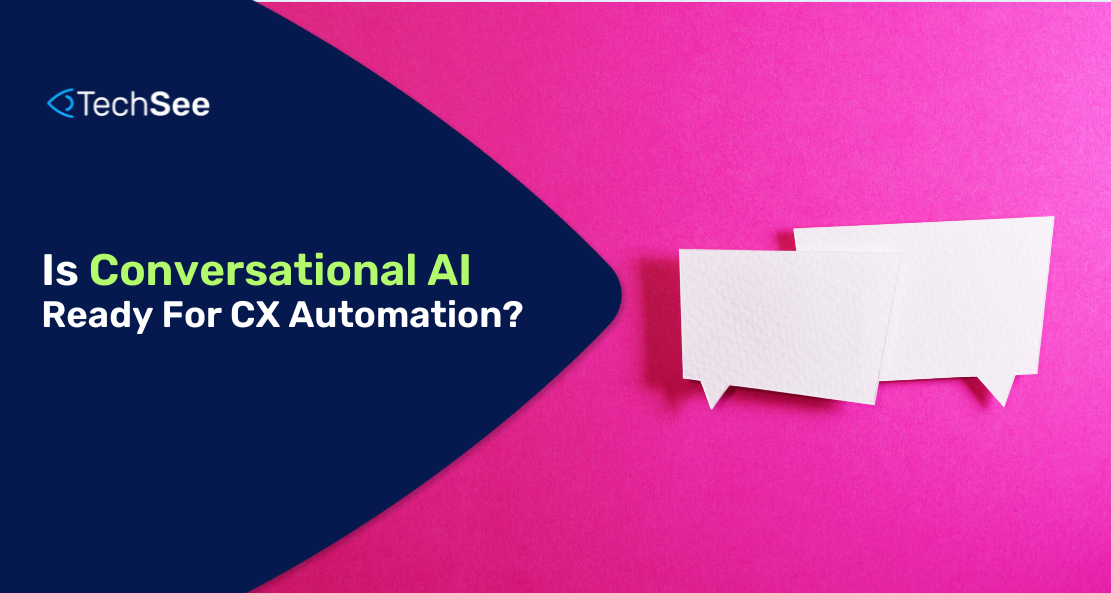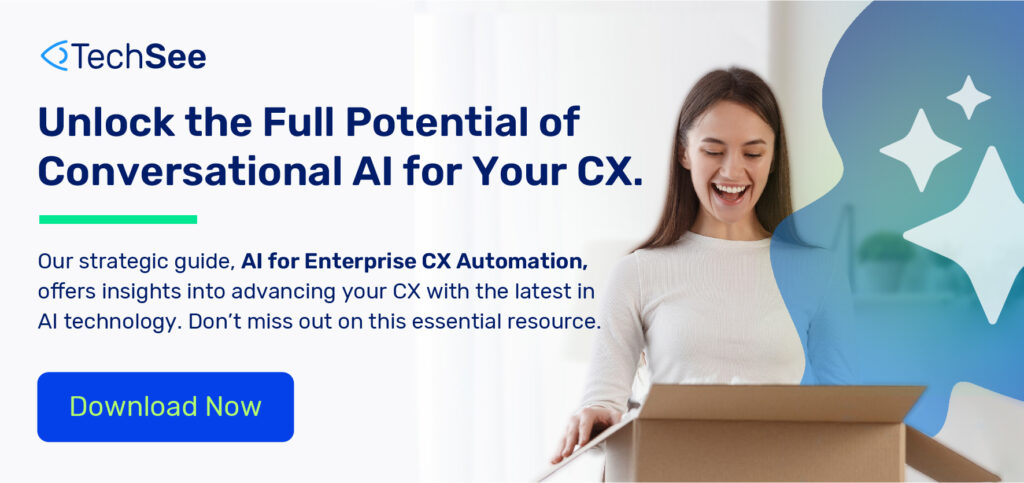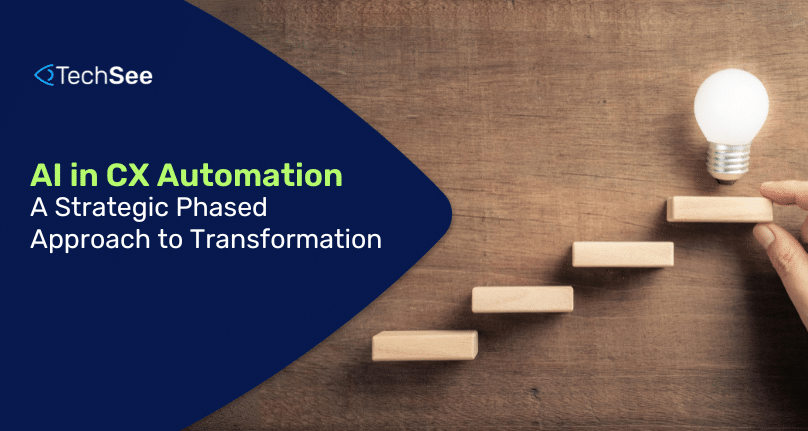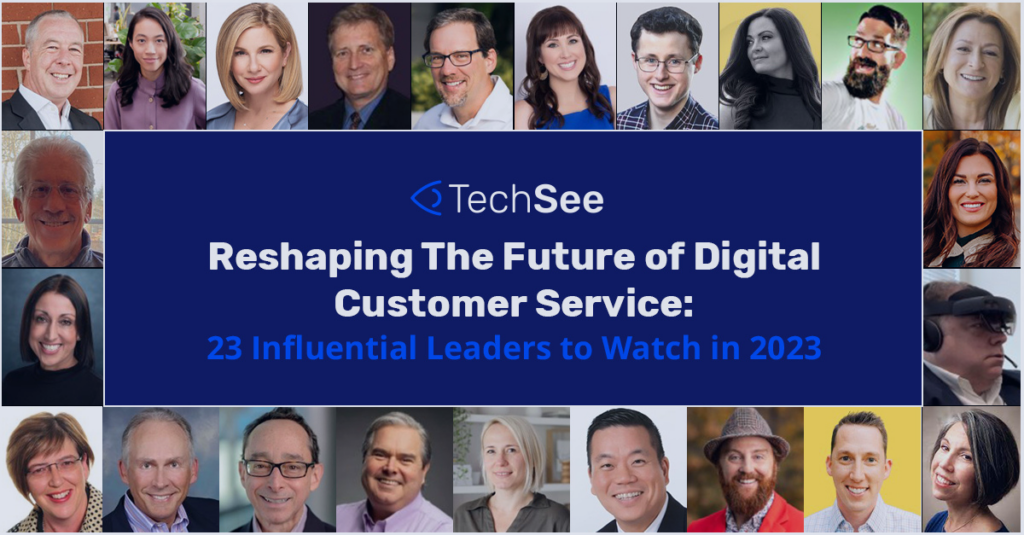Contents
Industry events and news coverage are full of companies offering Generative AI, Conversational AI, chatbots, and AI Agents. However, given the relative youth of this space, it can be difficult to distinguish between basic and advanced solutions providers. As a result, it can be very challenging to assess Conversational AI providers. In this post, we will provide some core concepts you will need to understand the Conversational AI landscape better and, ideally, find the right Conversational AI for CX partner for your particular needs.
Understanding Conversational AI
Conversational AI refers to technologies that users interact with through a natural, conversational interface, like chatbots or virtual agents. These solution providers use a blend of technologies, including Large Language Models, vector embeddings, fine-tuning, and more, to artificially mimic human interactions. Simply put, Conversational AI enables businesses to harness innovations like Generative AI to automate or augment customer interactions.
Conversational AI vs Chabots vs Generative AI
Conversational AI and chatbots are both technologies that can enhance customer experience and support, often through a chat-based interface. However, they operate on different levels of complexity and are best used in quite different circumstances.
Chatbots are typically rule-based systems that follow predefined scripts to interact with customers. They are programmed to respond to specific inputs with specific outputs, making them effective for handling simple, repetitive tasks such as answering frequently asked questions or guiding users through a limited set of predefined processes. By their nature, chatbots are limited to their programming, and they may struggle with complex requests or conversations that deviate from their script.
Conversational AI leverages advances like Large Language Models to understand and respond to a wide range of user inputs. While some providers use older technologies like Natural Language Processing to understand user intent, the industry is increasingly looking to advances like Generative AI as more capable solutions. Conversational AI technology can interpret and generate human-like text, allowing the AI to address more complex interactions and provide more relevant and contextually personalized responses. Many Conversational AI providers offer integrated reinforcement learning, which improves AI performance over time.
While Conversational AI may require more resources to implement and maintain, providers with proprietary cognitive onboarding and reinforcement capabilities can automate much of this onboarding and training process. Compared to Chatbots, Conversational AI is increasingly viewed favorably as it can provide a more sophisticated and engaging customer experience.
Generative AI uses advanced AI and machine learning techniques across a massive training set to accurately predict outcomes, often in a remarkably human-like manner. These technologies are often confused, as both Conversational AI and text-based Generative AI can automate natural language interactions. In fact, many Conversational AI providers use Generative AI under the hood in order to generate human-like interactions. However, Conversational AI providers will typically bring substantial added cognitive infrastructure to enable strong use-case-specific performance. In contrast, Generative AI providers will typically offer access to their generic AI models and runtime, requiring the customer to develop their own Conversational AI capabilities or applications.
The Evolution of Conversational AI for CX
In order to better understand what you can accomplish with Conversational AI and if a particular Conversational AI partner is right for you, we must understand the evolution of Conversational AI’s capabilities.
- Phase 1: Factual Answers
In this phase, a Conversational AI provider can ingest your knowledge and provide a conversational interface for users based on this knowledge. However, the types of questions it can handle are typically limited to straightforward questions and answers. Strategically, these conversational AI chatbots serve a similar role to FAQ pages but with a far wider corpus of knowledge and, typically, at a far higher cost. - Phase 2: Data & Action Automation
In this phase, Conversational AI expands the scope of capabilities to include providing answers and taking actions through third-party integrations. For example, the Conversational AI will gain the ability to provide an order update or notify the customer of a service outage in their area. - Phase 3: Customer Solutions (Guided Flows)
In this phase, the Conversational AI gains the ability to guide customers through every step in a support or service flow to full issue resolution. This requires a more advanced level of cognition and logic-based processing not natively available from today’s Generative AI providers.
Is this the right Conversational AI provider for my CX needs?
When selecting a Conversational AI provider, there are a number of considerations one must take into account. Below are five questions that will help you better define your objectives and identify the right partner for your needs.
- What problem am I trying to solve?
Many AI-powered solutions are incredibly costly and manpower intensive, especially during setup. This makes partner selection a delicate balance between selecting a technology that will give you sufficient room for growth and a technology partner who will meet your needs today at a rational price point, given your limited needs.For example, let’s say you are a smart home hardware provider. To automate your customer support and troubleshooting, you will need a provider with an advanced Phase 3 solution. However, if you only want to provide basic eCommerce support, such as order status updates or system downtime updates, a Phase 2 solution will suffice. Ideally, you will want to find a partner with all of the capabilities you need and a flexible deployment model that will allow you to grow as needed. - Do you need a specialist or a generalist?
Are you looking for an expert to solve a particular need, like troubleshooting, or a generalist who can be adapted and trained to cover a wide variety of use cases but lacks the depth needed to address more complex issues? A wide variety of solutions providers are available on the market, with differing levels of expertise and depth versus breadth. Conversational AI for CX is not a one-size-fits-all solution, so it’s important that you match your automation, specialization, quality, and professional services needs with a given supplier’s offering. - Where are you in your AI journey? What managed services are looking for?
There is no shortage of solutions providers who will provide you with premium access to a self-service and setup Conversational AI platform. However, given the relative newness of the more advanced LLM-based solutions, few providers have the latest fully integrated technology and fully customer-managed solutions. For example, while some providers will offer “turnkey” conversational AI based on document uploads and web scraping, these solutions are generally underpowered and lack the polish and refinement required in the enterprise market. In contrast, more powerful and customizable solutions often require a heavy lift to set up and run. Some will even require a fair amount of experience in Generative AI in order to optimize or deploy properly. There are also many providers, often the most advanced visionaries, with integrated managed services offerings or strategic partnerships with GSIs who can manage the design, setup, and optimization. This allows enterprise leaders to capitalize on the learned experience gained by teams supporting multiple enterprises, getting up and running faster and more effectively. - What is their AI track record?
Deploying AI to automate customer experiences differs greatly from deploying other SaaS solutions. AI-based solutions require a great deal of subject matter expertise and practical experience navigating challenging and unpredictable outcomes. Look for a partner who has demonstrated deep expertise not only in their technology solution and in their ability to deploy and scale AI solutions for companies like your own. - Is there a good cultural fit?
Selecting an AI solution that aligns with an organization’s culture is crucial for several reasons. Firstly, a culturally compatible AI solution can seamlessly integrate into the existing workflows and teams structures, enhancing productivity without disrupting established processes. A strong cultural fit also ensures that the employees readily accept the AI solution, fostering a collaborative environment where humans and AI can work together towards common goals. Moreover, AI is a rapidly evolving field, and organizations venturing into this domain often innovate and chart new paths. This journey of exploration and innovation is not a solitary one but a shared endeavor between the organization and the AI solution. A strong cultural fit ensures that the AI solution can grow and evolve with the organization, adapting to changing needs and priorities and contributing to the organization’s long-term success. This symbiotic relationship between the organization and the AI solution underscores the importance of cultural compatibility in enterprise AI adoption.
Conclusion
Conversational AI for CX holds incredible potential. This technology promises to dramatically improve your customer experience and your bottom line. However, finding the right partner for your enterprise’s needs, culture, and use cases is critical to long-term success. In our years of experience delivering practical and innovative AI solutions, we have found a deep understanding of the underlying technology, business objectives, technical and operational requirements, and cultural fit, which are critical starting points in designing any AI program. While this post only scratches the surface of the Conversational AI for CX opportunity and consideration set, we hope you find it informative and helpful.
To learn more about Sophie AI’s Conversational AI solutions and how we can help your enterprise, please book your demo today.







